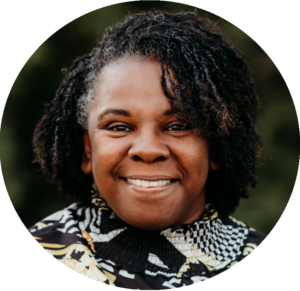ANCHORS
Educational Resources to Support Your Mental Health and Well-Being
The anchor on a boat has an incredible job! It’s designed to keep the boat safe and secure.
Just like the boat’s anchor, there are anchors that can support our mental health. Our thoughts, actions, and routines can all provide healthy anchors to reduce stressors experienced daily.
This is the first in a series of articles will explore the different anchors we can use to support our mental health journey. Each blog post in the series will start with “Anchors” so you can easily find them. The first is about communication.
Effective Communication in Relationships
Look, we’ve all been there. You’re trying to explain something to your partner, but it’s like you’re speaking different languages. You feel frustrated, they feel misunderstood, and before you know it, a simple conversation has turned into a full-blown argument. Sound familiar?
The truth is effective communication is the foundation of any healthy relationship. Without it, misunderstandings and resentments can build up, creating a toxic environment that’s no fun for anyone.
But fear not, my friends! With a few simple tips, you can become a communication ninja and keep those relationship vibes strong.
Let’s talk about why effective communication is so important. At the core of every relationship, there are a few common themes: feeling heard, having your feelings and experiences validated, and having a sense of emotional safety. When you can communicate effectively, you’re able to meet those needs and create a deeper connection with your partner.
But it’s not just about feeling good (although that’s a huge part of it). Effective communication also allows you to give and receive influence in your relationship.
Now, before you start thinking about mind control or something equally sinister, let me explain. Influence simply means the ability to affect someone’s thoughts or actions.
When you communicate effectively, you’re able to share your perspectives and needs in a way that resonates with your partner, and they’re more likely to take them into account. And vice versa!
Ten Tips for Effective Communication
So, how can you become a communication master? Here are ten tips to get you started:
- Listen actively. Put down your phone, make eye contact, and really focus on what your partner is saying.
- Repeat back what you’ve heard. This shows that you’re listening and ensures that you’ve understood correctly.
- Use “I” statements. Instead of saying “You always do this,” try “I feel frustrated when this happens.”
- Avoid criticism and blame. Focus on the issue at hand, not attacking your partner’s character.
- Stay calm. Take a break if you need to, but don’t let emotions escalate to the point where you’re saying things you’ll regret.
- Be honest (but kind). Honesty is important, but there’s no need to be brutal. Choose your words carefully.
- Compromise. Relationships are all about give and take. Be willing to meet in the middle.
- Show appreciation. Compliment your partner and let them know that you value their efforts to communicate.
- Practice empathy. Try to see things from your partner’s perspective, even if you disagree.
- Keep an open mind. Be willing to change your stance if your partner makes a good point.
Remember, effective communication is a skill that takes practice. But with patience, understanding, and a little bit of humor, you and your partner can become a communication power couple. So, keep those lines of communication open, and enjoy the journey!


This blog post was written by:
Audra Williams, LCSW
Clinician – Virtual Health
Audra Johnson has over 16 years of social work experience developed in child welfare, substance use treatment, mental health and education settings. Audra enjoys helping others and demonstrates this both personally and professionally. For decades she has volunteered in her church and community, and she loves to share her passion for social work.


